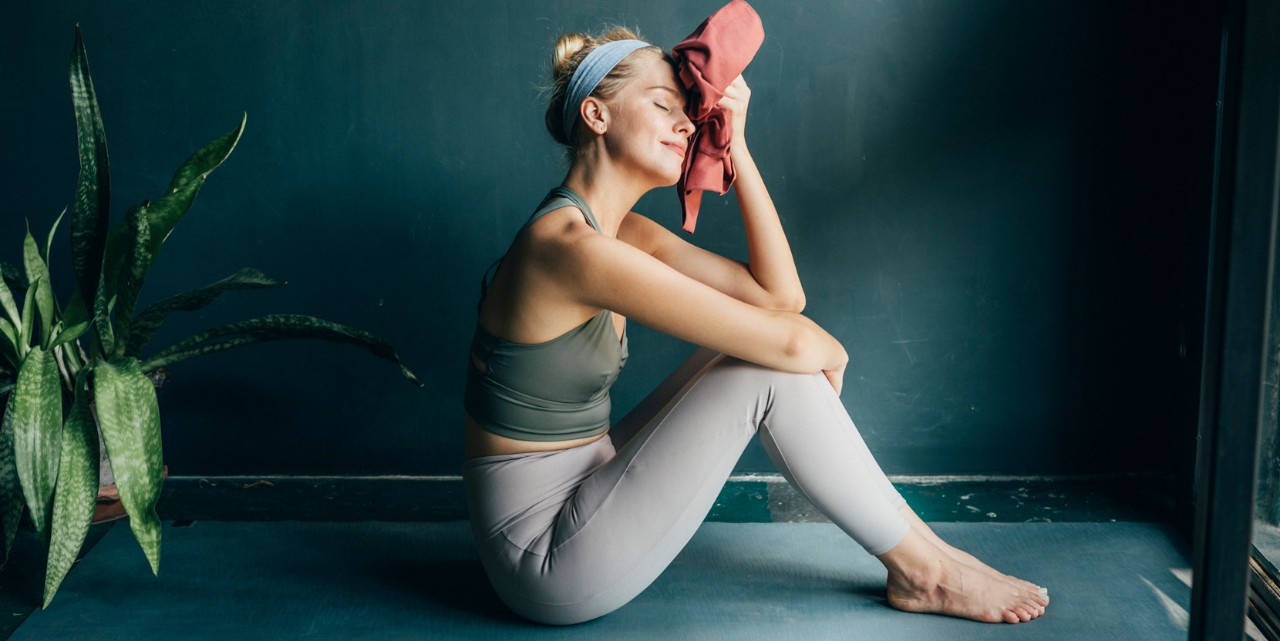Running tips for women
Should you train during your period or run while pregnant? Training scientist Monika Brandt explains what women should look out for.

- Should women take a break from training during their period or can sport have a positive impact?
- What about during pregnancy – is running a no-go?
- How long can you keep running during pregnancy?
- Do you recommend wearing a sports bra for running?
- What do you have to look out for when buying a sports bra?
- Is there any other clothing designed specifically for women?
- What training tips do you have for women?
- You may also be interested in these articles
Should women take a break from training during their period or can sport have a positive impact?
Running during your period can have a positive impact on your psyche and your performance. A light workout is best. By sticking to regular training during your period, you can reduce your sensitivity to pain. Sport very rarely exacerbates pain. Many women take a break from training, because they’re worried that sport will make the pain worse. However, improved blood flow actually helps relax the pelvic muscles.
What about during pregnancy – is running a no-go?
In consultation with your doctor, there’s no reason why you shouldn’t run during pregnancy, especially women who ran regularly before they fell pregnant. However, it’s not a good idea to take up running during pregnancy if you’ve never done it before. Upping the distance or training intensity is also not recommended, because women are more susceptible to injury during pregnancy. Generally speaking, that you should keep running for as long as you feel comfortable. Regular (running) training also helps your body recover more quickly once you’ve had the baby.
How long can you keep running during pregnancy?
There’s no clear-cut answer to this question, because it varies greatly from woman to woman. Key factors include the starting level, general physical fitness and how the pregnancy progresses. Some women who take part in competitive or high-performance sports keep running until shortly before the birth, but this, of course, is only possible because their bodies have got used to the strain over a number of years. Women who run for fun in their free time should listen to their bodies and, if in doubt, talk to their doctor.
Do you recommend wearing a sports bra for running?
It’s a good idea to wear a sports bra, because the movement – frequent ups and downs and the rotations – can severely strain or even damage the sensitive breast tissue consisting of skin, fat, ligaments and glands. Back pain can also be triggered or intensified if you don’t wear the right sports bra. Scientific studies have even shown that sport bras are essential!
What do you have to look out for when buying a sports bra?
The less additional material, the better. Sports bras shouldn’t have underwiring, clasps and hooks or frills, because they can make running uncomfortable. The level of support provided by a sports bra depends on your cup size and is generally indicated on the packaging. It’s also important that the bra is made of a comfortable, fast-drying and breathable material and it should fit snugly but not too tightly. The bra should not slip and/or ride up. Tip: Test the optimal fit with larger arm movements (for example, stretching your arms over your head).
Is there any other clothing designed specifically for women?
I can imagine that there are also seamless briefs for women that fit snugly under tight running trousers without a VPL. You can also buy running skirts, but I don’t really see how these would be any better than leggings. It’s probably more to do with fashion than functionality.
What training tips do you have for women?
Women tend to underestimate themselves and are sometimes reluctant to push themselves to the limit. They feel most comfortable at the so-called “feel-good pace”, where they can still have a good chat with their running buddy. But women can and should get out of their comfort zone too! This not only makes them more efficient, but also more stress-resistant and mentally stronger. Important: Running faster doesn't have to mean full throttle – and it doesn't hurt either. You can vary the speed and type of training. The more you vary your training, the more your body gets used to it. The next time you run a bit faster, it will feel much easier.



